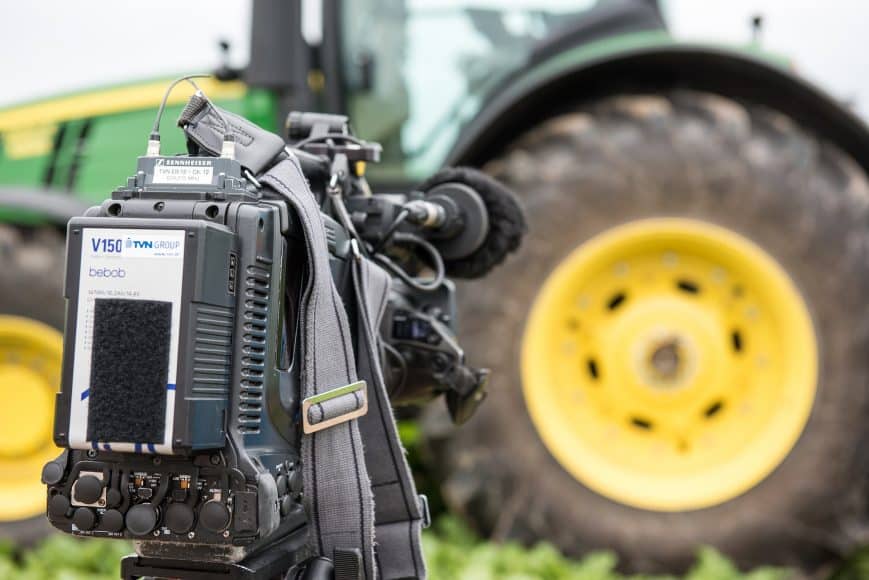In response to European farmers’ protests, the European Commission is backing away from a project that proposed limitation of pesticide use in agriculture within the EU and is introducing exceptions to certain Common Agricultural Policy regulations.
The exception announced by the EC on February 1 of this year applies to so-called maintenance of non-productive areas. This decision has its pros and cons. The positive side is that the EC sends a signal to farmers that it listens to and understands their arguments, the bad side – it confirms farmers in the belief that protests and blockades allow them to achieve goals that often short-sighted serve only certain groups of agricultural producers, costing the entire society in the long run.
Under the rules of the Common Agricultural Policy (CAP), farmers must meet nine standards (referred to as GAEC – good agricultural and environmental conditions) related to climate and environmental issues in order to receive EU subsidies. Failure to comply can result in reduction of payment quota.
In accordance with GAEC standard 8, farmers are obligated to allocate at least 4% of arable land for non-productive areas, including fallow. This condition does not apply to farmers who own less than 10 hectares of arable land. It’s worth noting that in Poland, almost 1 million agricultural farms (74% of all) cover an area smaller than 1 hectare!
Now, however, the European Commission proposed for the current year to introduce a possibility of derogation from these regulations for all farmers. This is the first tangible political response aimed at solving problems related to farmers’ income. According to the Commission’s proposal, to fulfill GAEC 8 requirement, farmers will not necessarily have to maintain fallow or generally non-productive land on 4% of the arable land area. It will be enough if they grow nitrogen-fixing plants (like lentils or peas) and/or catch crops on 7% of their arable land.
This solution is still in line with the climate ambitions of the CAP, as the use of nitrogen-fixing plants and catch crops (crops sown between two main crops, which can serve as fodder for animals or green manure) brings a number of environmental benefits for soil health, including biodiversity and limiting nutrient leaching.
It seems the EC’s decision is a calculated signal sent to protesting farmers, emphasized by European Commission President Ursula von der Leyen, that agriculture is the basis of EU food security, and the CAP budget of 386.7 billion euros (33.1% of the EU budget) helps stabilize European farmers’ incomes while rewarding their efforts towards climate and sustainable development.
This derogation may slightly calm the mood of the farmers who have been protesting for several weeks in several EU countries, but all indications are that it will not stop them. The solution does not fully fulfill the demands of the farmers, who want full discretion in choosing the plants they grow, and the agricultural protest agenda includes many other elements. Farmers demand, among other things, the restoration of trade restrictions with Ukraine and the renegotiation of the entire European Green Deal. As I write this, one of the Polish farmers’ organizations announces a general strike nationwide, combined with road and border crossing blockades for this very reason.
As farmers realize protests give them agency and that this power significantly increases by uniting in a protest on the scale of several European countries, ill-considered concessions could only whet the appetites for the achievement of subsequent “conquests” that do not necessarily serve the farmers themselves in the long term, nor society as a whole.
Listening for some time to the statements of representatives of farm organizations, farmers, and some politicians, I get the impression that there is a lack of understanding of the essence of the European Green Deal’s assumptions and their significance for the future of our planet, including agriculture, and the simple fear of the new, unknown prevails – skillfully fueled and exploited by some to achieve their goals through quarrels and crises. p>
The ongoing campaign for the European Parliament elections, unfortunately, does not favor a rational debate on current problems and upcoming challenges faced by European agriculture, such as: increasing production costs, large fluctuations in agricultural product prices, the influx of cheap agricultural products from Ukraine, climate change.
Often, we observe extreme attitudes in the discussion, while we need an honest dialogue to craft a wise strategy in the face of overlapping crises, using the assumptions of the European Green Deal, which does not aim to mindlessly reduce production, but a change of approach and a sensible transformation of agriculture, allowing Europe to continue to ensure food security while simultaneously limiting its impact on the natural environment and undeniably changing climate. It needs understanding that agriculture doesn’t have to be a problem, but an effective solution for the climate crisis, as it can sequester large amounts of greenhouse gases.
Let’s hope that the strategic dialogue on the future of the EU’s agriculture initiated by the President of the European Commission, Ursula von der Leyen, in January this year, will calm and organize the debate. The dialogue is supposed to involve key interested parties from the entire agri-food chain, including farmers, cooperatives, agri-food enterprises, and rural communities, as well as NGOs, civic society representatives, financial institutions, and academic communities. The task of the new forum is to shape a common vision of the future agriculture and food system of the EU.
Grzegorz Brodziak, Member of the Society of Polish Economists
